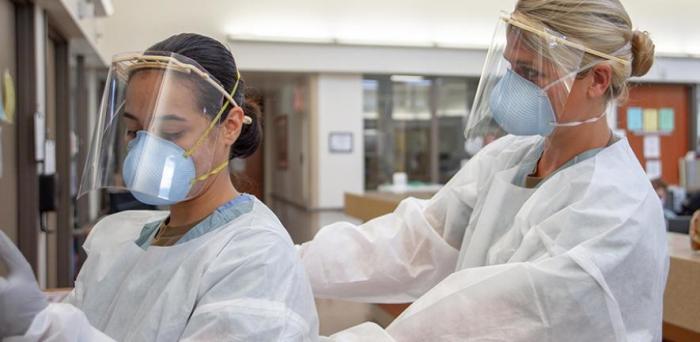The researchers, from the University of Cambridge, tested a variety of materials to construct a new inexpensive and reliable method for assessing the fit of masks. Commercial testing equipment has been in extremely short supply since the outbreak of the COVID-19 pandemic, forcing many healthcare institutions to abandon regular fit-testing of their staff.
Their results, published in the journal Disaster Medicine and Public Health Preparedness, found that widely-available alternatives, such as aroma diffusers and extra-large freezer bags, can be used to make a qualitative fit-testing setup which performs at a similar level to commercial solutions.
While commercial kits typically cost several hundred pounds, the Cambridge setup can be made for under £35. In addition to its potential benefits to the healthcare industry, this inexpensive setup can be used by anyone who wants to test the fit of their mask at home.
The researchers caution, however, that their setup will only test the fit of sealing masks with high filtration ability, such as N95, FFP3, KN95 or FFP2 masks. The method cannot be used to test the fit of surgical or fabric masks, as these do not typically offer the fit or filtration necessary to pass a qualitative fit-test.
Sealing masks offer the wearer a high level of protection, but only if they fit properly, with no gaps between the mask and the wearer’s face. Previous studies have found that even if the mask material is highly efficient at filtering fine particles, the effectiveness of the mask is hampered by an imperfect seal.
Image: Medical personnel don PPE before entering a COVID-19-positive, non-critical patient’s room.
Credit: Official US Navy Page
Reproduced courtesy of the University of Cambridge
